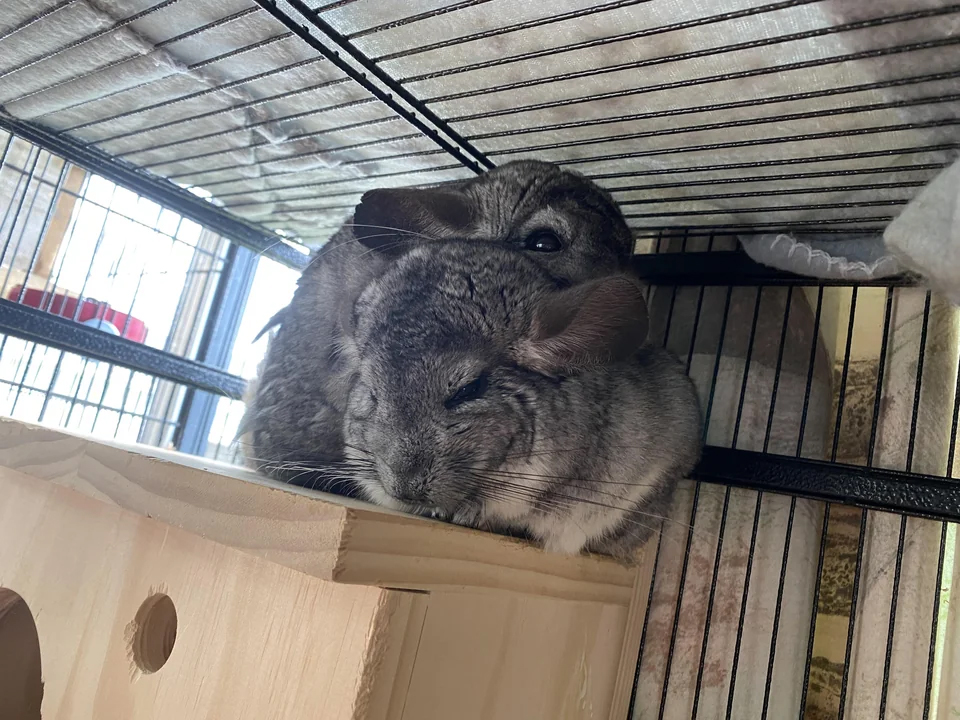Chinchillas are one of the most popular exotic pets and are known for their soft and dense fur, adorable looks, and playful nature. These small rodents are native to the Andes Mountains of South America and are well-known for their unique breeding behavior. Chinchillas are seasonal breeders, which means they only mate during a specific time of the year known as the mating season.
The chinchilla mating season usually occurs during the late winter or early spring months in their natural habitat. However, for chinchillas kept in captivity, mating season can occur at any time of the year, as their environment and diet are controlled by their owners.
If you are a chinchilla owner or plan on breeding chinchillas, it’s essential to understand the mating behavior of these animals, the best time for breeding, and how to prepare for the mating season.
Understanding the Mating Behavior of Chinchillas
Chinchillas are social animals that mate for life. In the wild, they form monogamous pairs and live in family groups, which consist of a male, a female, and their offspring. Chinchillas are active and playful creatures, but they become even more affectionate during the mating season.
During the mating season, chinchillas become more vocal and active, and they engage in a series of courtship rituals. The male chinchilla will often chase and vocalize to the female, showing his interest in mating. The female chinchilla, on the other hand, will become more receptive to the male’s advances and will vocalize back to him.
When a female chinchilla is ready to mate, she will often display a unique behavior known as the “lordosis posture.” This posture involves arching the back and raising the hindquarters to present the female’s reproductive organs to the male. The male will then mount the female and copulate with her for about 30 seconds.
Chinchillas have a gestation period of around 111 days, and a female chinchilla can give birth to 1-6 kits (babies) per litter. Chinchillas are excellent mothers and will take good care of their offspring, providing them with milk and keeping them warm and protected.
How to Identify Chinchilla Mating Season
As mentioned earlier, chinchilla mating season usually occurs during the late winter or early spring months in their natural habitat. However, for chinchillas kept in captivity, the mating season can occur at any time of the year, depending on their environment and diet.
There are several signs that can indicate that your chinchilla is in the mating season. Some of these signs include:
- Increased Vocalization: Chinchillas become more vocal during the mating season, and you may notice that your chinchilla is making more noise than usual.
- Aggressive Behavior: Male chinchillas can become territorial during the mating season and may display aggressive behavior towards other males or females.
- Courtship Behavior: As mentioned earlier, chinchillas engage in a series of courtship rituals during the mating season, such as chasing and vocalizing.
- Changes in Behavior: Chinchillas may become more active and playful during the mating season, and you may notice that they are more interested in interacting with their owners.
The Best Time for Chinchilla Breeding
The best time for chinchilla breeding is during the mating season, which usually occurs during the late winter or early spring months in their natural habitat. However, for chinchillas kept in captivity, the mating season can occur at any time of the year, depending on their environment and diet.
If you plan on breeding chinchillas, it’s essential to make sure that both the male and female chinchillas are healthy and in optimal condition. Chinchillas reach sexual maturity at around 8 months of age, but it’s recommended to wait until they are at least a year old before breeding them.
Breeding chinchillas during the mating season increases the chances of a successful pregnancy and healthy offspring. During the mating season, male and female chinchillas are more receptive to each other, and the chances of a successful mating increase.
It’s important to note that chinchillas should not be bred too frequently, as it can lead to health problems for both the mother and offspring. Chinchillas should have at least a few months of rest between each pregnancy to ensure their health and well-being.
The Importance of Preparing for Chinchilla Mating Season
If you plan on breeding chinchillas, it’s essential to prepare for the mating season to ensure a successful breeding process and healthy offspring.
One of the most important things you can do is to make sure that both the male and female chinchillas are in good health and have a healthy diet. A well-balanced diet that includes high-quality hay, fresh vegetables, and a limited amount of pellets can help maintain the chinchillas’ health and fertility.
You should also make sure that the chinchillas’ living environment is clean, spacious, and free of any potential hazards. A clean living environment can help prevent the spread of diseases and ensure that the chinchillas are comfortable and stress-free during the mating season.
It’s also essential to monitor the chinchillas closely during the mating season and look out for any signs of health problems or complications. If you notice any unusual behavior or symptoms, it’s important to seek veterinary care immediately.
Common Health Issues During Chinchilla Mating Season
Chinchillas are generally healthy animals, but they can be susceptible to certain health problems during the mating season. One of the most common health issues during the mating season is reproductive problems, such as impaction or infections.
Impaction occurs when a male chinchilla’s reproductive organ becomes blocked, preventing him from mating with the female. This can lead to a build-up of fluid and swelling, which can be painful and uncomfortable for the chinchilla.
Infections can also occur in male and female chinchillas during the mating season. These infections can be caused by bacteria or viruses and can lead to symptoms such as discharge, inflammation, and pain.
If you notice any signs of reproductive problems or infections in your chinchillas during the mating season, it’s important to seek veterinary care immediately. Prompt treatment can help prevent the spread of the infection and ensure that your chinchillas recover quickly.
Key Takeaways About Chinchilla Mating Season
Chinchilla mating season is an essential time for chinchillas, and understanding their mating behavior and the best time for breeding is crucial for chinchilla owners and breeders.
Chinchillas are seasonal breeders and typically mate during the late winter or early spring months in their natural habitat. However, for chinchillas kept in captivity, the mating season can occur at any time of the year, depending on their environment and diet.
Preparing for chinchilla mating season is essential for ensuring a successful breeding process and healthy offspring. This includes maintaining a healthy diet, keeping their living environment clean and free of hazards, and monitoring their health closely during the mating season.
Chinchillas can be susceptible to certain health problems during the mating season, such as reproductive problems and infections. It’s essential to seek veterinary care immediately if you notice any signs of health issues in your chinchillas.
Breeding chinchillas can be a rewarding experience for chinchilla owners and breeders, but it’s important to do so responsibly and with the well-being of the chinchillas in mind. By understanding chinchilla mating season and taking the necessary precautions, you can ensure that your chinchillas are healthy and happy during the breeding process.
It’s also important to note that breeding chinchillas can be a complex process that requires careful consideration and planning. If you’re new to chinchilla breeding, it’s recommended to do thorough research and seek the advice of experienced breeders or veterinarians to ensure that you’re well-equipped to handle the breeding process.
In addition to preparing for chinchilla mating season, it’s also important to consider the responsibility of caring for and finding homes for the offspring. Chinchilla breeding can result in a significant number of offspring, and it’s important to have a plan in place for their care and future homes.
In conclusion, chinchilla mating season is an essential time for chinchillas and their owners or breeders. By understanding the mating behavior of chinchillas, identifying the mating season, preparing for breeding, and monitoring their health closely, you can ensure a successful breeding process and healthy offspring.
However, breeding chinchillas should be done with care and responsibility, and it’s important to consider the well-being of the chinchillas and the responsibility of caring for the offspring. With proper planning and preparation, chinchilla breeding can be a rewarding experience that can contribute to the preservation of this unique and adorable species.






